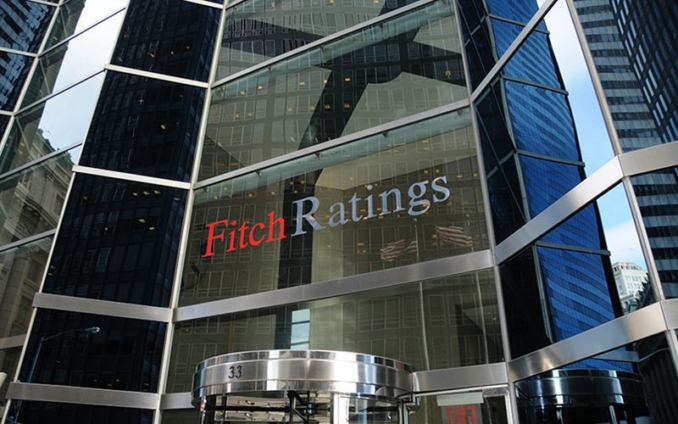International ratings agency, Fitch Ratings, has upgraded Ghana's Long-Term (LT) Local-Currency (LC) Issuer Default Rating (IDR) to 'CCC' from 'RD'.
The upgrade of the ratings on Ghana's LC denominated debt follows the completion of the Domestic Debt Exchange Programme by Ghana in February 2023.
Fitch, however, viewed the transaction as a distressed debt exchange in a context of heightened fiscal pressures, with interest costs amounting to 54% of revenues in half-year 2022, and lack of access to international capital markets.
Again, the resumption in payments on Local Currency bonds that cures the default on LC debt also triggered the upgrade of Ghana's credit rating.
Fitch said “the upgrade of Ghana's LTLC IDR follows this resumption in payments on LC bonds that cures the default on LC debt”.
Despite this, the country still remains in the junk status.
Two principal payments on bonds issued prior to the domestic debt exchange were due on February 6, 2023 and February 20, 2023.
These payments, which remained due to holders who were either ineligible for the domestic debt exchange or who opted out of the domestic debt exchange, were made on March 13, 2023.
Enhanced Liquidity
Fitch predicted that the domestic debt exchange will allow Ghana to reduce its interest payments in 2023 by around 10% of expected revenues, or 1.6% of Gross Domestic Product (GDP).
“Gross financing needs this year [2023] have been reduced by 5% of GDP. In 2024, interest payments would be lowered by 6% of revenues, or 0.9% of GDP”.
According to Fitch's forecast, the domestic debt restructuring together with the suspension of external debt service, significantly reduces Ghana's cash fiscal deficit in 2023 to 4.5% of GDP in 2023.
Solvency concerns remain critical
Fitch also said the Domestic Debt Exchange has increased the debt-to-GDP ratio by 0.6 percentage points with payment-in-kind coupons corresponding to an increase in the face value of the new bonds compared to the face value of tendered bonds.
Despite a substantial redemption re-profiling and significantly lowered interest rates, the present-value of public debt-to-GDP has been reduced by only one percentage points using the standard 5% discount rates that applies in the International Monetary Fund/World Bank debt sustainability framework for low-income countries.
Fitch estimated the present value to be slightly above 100% after the completion of the domestic debt exchange.
Latest Stories
-
NDC administration will reverse all ‘last-minute’ gov’t employee promotions – Asiedu Nketiah
11 minutes -
Kudus sights ‘authority and kingship’ for elephant stool celebration
12 minutes -
We’ll embrace cutting-edge technologies to address emerging healthcare needs – Prof. Antwi-Kusi
45 minutes -
Nana Aba Anamoah, Cwesi Oteng to attend Philip Nai and Friends’ charity event
50 minutes -
Environmental protection officers receive training on how to tackle climate change
53 minutes -
CLOGSAG vows to resist partisan appointments in Civil, Local Government Service
2 hours -
Peasant Farmers Association welcomes Mahama’s move to rename Agric Ministry
2 hours -
NDC grateful to chiefs, people of Bono Region -Asiedu Nketia
2 hours -
Ban on smoking in public: FDA engages food service establishments on compliance
2 hours -
Mahama’s administration to consider opening Ghana’s Mission in Budapest
2 hours -
GEPA commits to building robust systems that empower MSMEs
2 hours -
Twifo Atti-Morkwa poultry farmers in distress due to high cost of feed
2 hours -
Central Region PURC assures residents of constant water, power supply during yuletide
2 hours -
Election victory not licence to misbehave – Police to youth
2 hours -
GPL 2024/2025: Nations thrash struggling Legon Cities
2 hours

